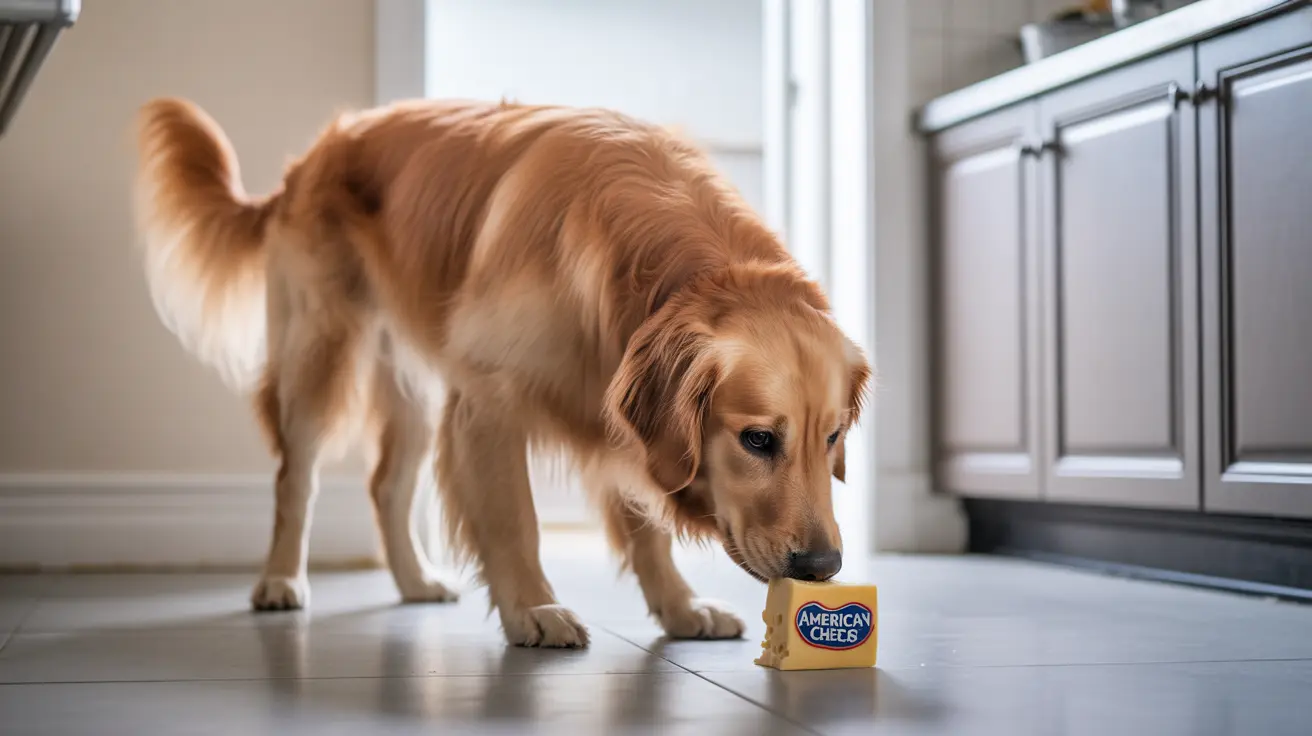If you're a dog owner, you've probably wondered whether it's safe to share cheese with your furry friend. The good news is that most dogs can indeed eat cheese, but there are important factors to consider regarding types, amounts, and individual tolerance levels.
In this comprehensive guide, we'll explore everything you need to know about feeding cheese to dogs, including specific information about American cheese, potential health benefits and risks, and how to safely incorporate this dairy treat into your dog's diet.
Understanding Dogs and Dairy Products
While dogs can generally consume dairy products, their ability to digest them varies significantly. Unlike their wolf ancestors, many modern dogs have developed some ability to process dairy, thanks to centuries of domestication. However, this doesn't mean all dogs can handle cheese equally well.
The key consideration is lactose content. Cheese contains less lactose than milk, making it easier for most dogs to digest. However, some dogs still lack sufficient lactase enzyme to process even small amounts of dairy products.
Can Dogs Eat American Cheese?
American cheese can be given to dogs in moderation, but it's not the best cheese option for your canine companion. While it contains some beneficial nutrients like protein and calcium, American cheese often includes artificial ingredients, preservatives, and high levels of sodium.
When offering American cheese to your dog, remember these guidelines:
- Keep portions very small (roughly the size of your fingertip)
- Limit frequency to occasional treats
- Monitor for any adverse reactions
- Choose regular American cheese over processed cheese products
Better Cheese Options for Dogs
Several cheese varieties are healthier choices for dogs compared to American cheese:
- Low-fat cottage cheese: High in protein, lower in fat
- Mozzarella: Lower in sodium and fat
- Plain cheddar: Good protein content, moderate fat
- String cheese: Easy to portion control
- Swiss cheese: Lower in lactose
Health Benefits and Risks
Cheese can offer several benefits when fed appropriately:
- Excellent high-value training treat
- Good source of protein and calcium
- Useful for hiding medications
- Contains beneficial fatty acids and vitamins
However, there are potential risks to consider:
- High fat content can lead to pancreatitis
- Excess sodium may cause dehydration
- Possible lactose intolerance reactions
- Risk of weight gain if overfed
How to Safely Introduce Cheese
When introducing cheese to your dog's diet:
- Start with a tiny amount
- Choose a low-fat, plain variety
- Watch for adverse reactions for 24 hours
- Gradually increase portion size if tolerated well
- Always maintain moderation
Frequently Asked Questions
Can dogs safely eat American cheese, and how often should it be given?
American cheese can be safe for dogs in very small amounts, ideally limited to 1-2 small pieces per week. Choose regular American cheese over processed varieties, and always monitor your dog for any negative reactions.
What types of cheese are healthiest and safest to feed my dog?
The healthiest cheese options for dogs include low-fat cottage cheese, mozzarella, and plain cheddar. These varieties typically have lower sodium content and fewer additives while providing good protein and calcium.
How can I tell if my dog is lactose intolerant or allergic to cheese?
Watch for symptoms such as diarrhea, vomiting, excessive gas, or stomach upset within 12-24 hours of cheese consumption. If you notice any of these signs, discontinue cheese and consult your veterinarian.
What are the risks of feeding cheese to dogs regularly or in large amounts?
Regular or excessive cheese consumption can lead to obesity, pancreatitis, digestive issues, and sodium toxicity. It may also contribute to poor eating habits and nutritional imbalances.
How should I introduce cheese to a puppy's diet without causing stomach upset?
Start with minimal amounts (pea-sized) of mild, low-fat cheese like mozzarella or cottage cheese. Wait 24 hours to observe any reactions before offering more. Keep portions tiny and infrequent for puppies, as their digestive systems are more sensitive.
Remember, while cheese can be a safe treat for most dogs, it should never make up more than 10% of their daily caloric intake. Always consult with your veterinarian before adding any new foods to your dog's diet, especially if they have existing health conditions or dietary restrictions.






